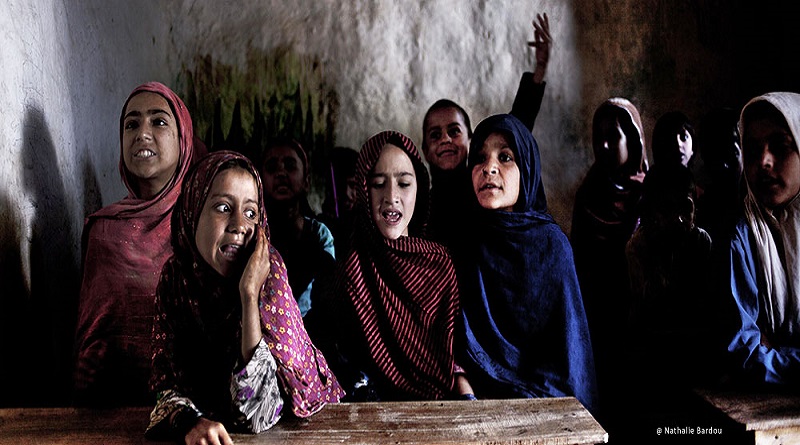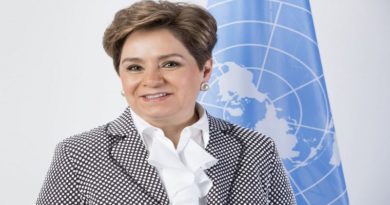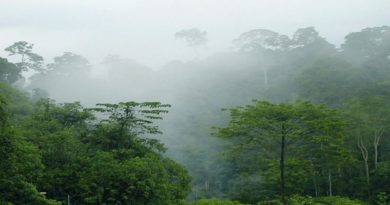Pakistan targets youth education to boost sustainability
We could lift one hundred and seventy-one million people out of poverty with it, cut child deaths by half and maternal mortality by 66 per cent with it, and in a world where almost one billion people go hungry, prevent wastage of 1.3 billion tonnes of food each year with it.
“It†is education, a powerful tool to shift values and behaviour— including using our resources more efficiently. Without education, achieving the Sustainable Development Goals (SDGs) by 2030 will be impossible.
This simple truth has led Pakistan to start work on aligning its education curriculum with the SDGs— the first country to do so since last year, when the world delivered a set of agreements to guide global development in the next 15 years and beyond.
“Achieving the SDGs requires behavioural change, which requires shifts in value systems,†said Mr. Muhammad Irfan Tariq, Director General of Environment and Climate Change at the Ministry of Climate Change of Pakistan (MoCC). “These shifts, in turn, can be achieved through educating our children.â€
Pakistan’s government unanimously passed a resolution to integrate the SDGs into national policies in February 2016. The environment ministry has since signed an agreement with UN Environment, through the EU-funded SWITCH-Asia Programme, to help this review of the country’s national environmental education policies and assess how they can be aligned with the SDGs and resource efficiency.
“It’s an opportunity to instil values that are in line with our country’s priorities of water and resource efficiency, and to educate the next generation of leaders and decision-makers on the importance of sustainable consumption and production,†Mr. Tariq said.
The environment ministry is leading the review in cooperation with other Ministries and provincial officials. It will first focus on Goal 12: “Ensure sustainable consumption and production patternsâ€, which cuts across 13 of all 17 SDGs.
Pakistan is striving to implement the SDGs in the context of a growing population – 189 million now, and expected to exceed 300 million by 2050. Right now, 21.5 million children aged five to nine years old are enrolled in over 146,000 primary schools throughout the country. The majority of the population is young, with a median age of 22.5 years old.
Education crucial to sound decisions by future leaders
UN Environment and MoCC have partnered with PIEDAR, a national non-governmental organization (NGO) with 25 years of experience in extending environmental education in Pakistan, and Aflatoun International, a global NGO that leads on education programs with over 3.9 million children and youth reached in 53,091 schools and non-formal education centres, and almost 200 partners spread across 116 countries.
“An understanding of challenges such as managing water scarcity and energy resources from a young age could also shape behaviour and generate important opportunities for innovation and green entrepreneurship,†said Mr. Simon Bailey, Head of Programmes and Research, Aflatoun International.
This is also a first for UN Environment: it’s the first time the organization is working directly with a government on environmental education policy and focusing on primary school education.
“In less than 15 years, today’s children will be tomorrow’s adults,†said Ms. Sara Castro-Hallgren, Programme Officer for the SWITCH-Asia Regional Programme at the UN Environment. “Education policies must ensure that our future leaders have the knowledge and skills to guide resource efficient development in their communities.â€
Aflatoun International’s goal is to ensure children are equipped with the skills and knowledge in resource efficiency and business skills, empowering them with the possibility of sustainable livelihoods.
A multidisciplinary kick-off
This week, the policy review process kicks off with a training course on September 28th and 29th, which is needed to attract buy-in from relevant bodies and institutions and to start identifying policy gaps.
Aflatoun’s curriculum will be adapted to fit the education system in Pakistan, and suit the local socio-economic and cultural context, in order to effectively teach young people sustainability concepts. This initial training will target relevant parties, including policymakers and sector specialists at national and provincial levels as well as Institutes for Teacher Education.
“Teachers are the key agents for the development of environmental education curricula and training in the use of syllabi and textbooks,†said Mr. Syed Ayub Qutub, Executive Director of the Pakistan Institute for Environment-Development Action Research (PIEDAR) and Project Lead for the Initiative.
The review is due to be completed by mid-December.
The agreement is a part of broader efforts to provide national policy support to Pakistan and contribute to the fulfilment of the UN SDGs, in particular the 12th goal on Sustainable Consumption and Production and the UN 10 Year Framework of Programmes on Sustainable Consumption and Production.
Through this demonstration project with the MoCC, the EU-funded SWITCH-Asia Programme hopes to scale up this model of policy engagement in environmental education systems to change social norms across other countries.




